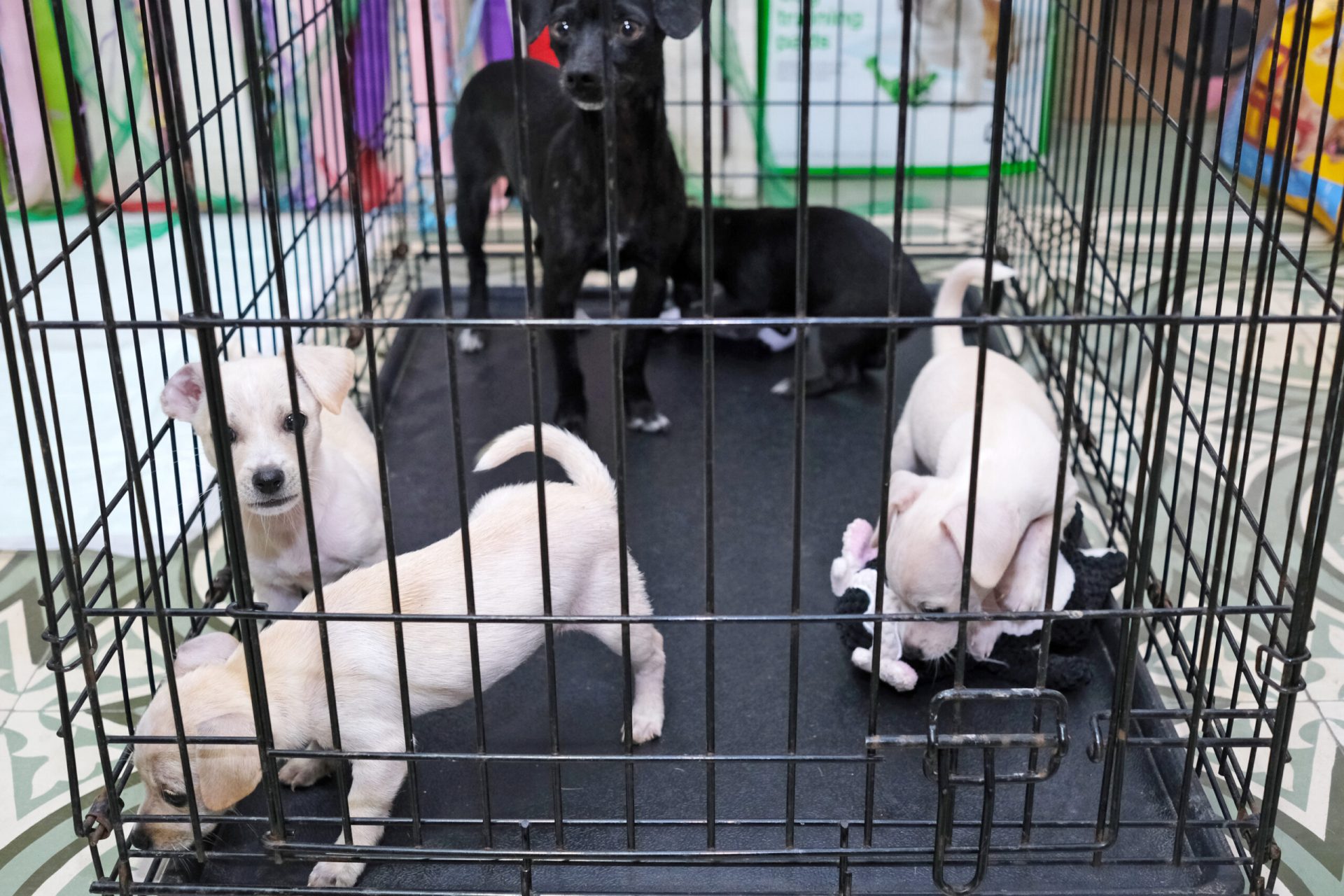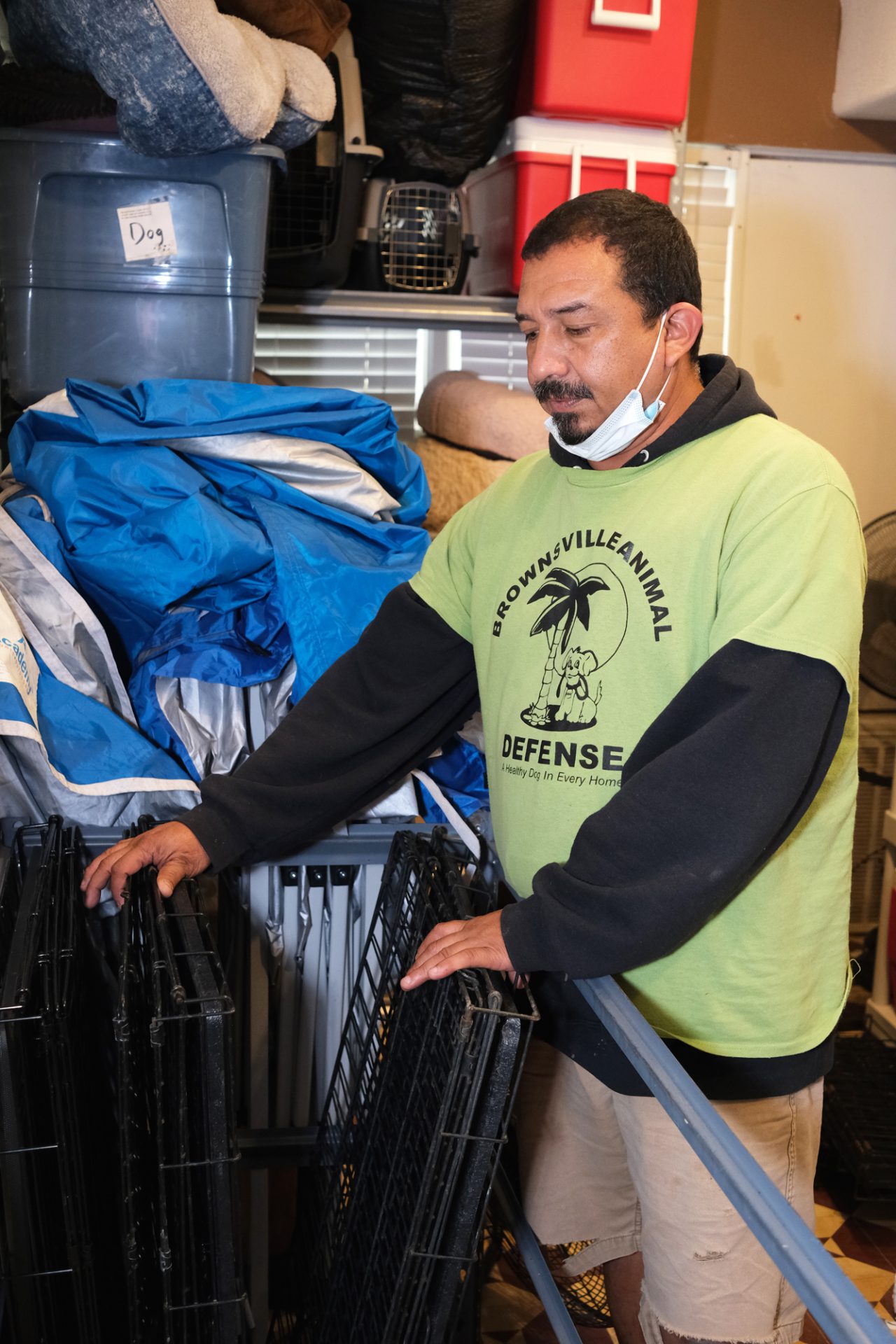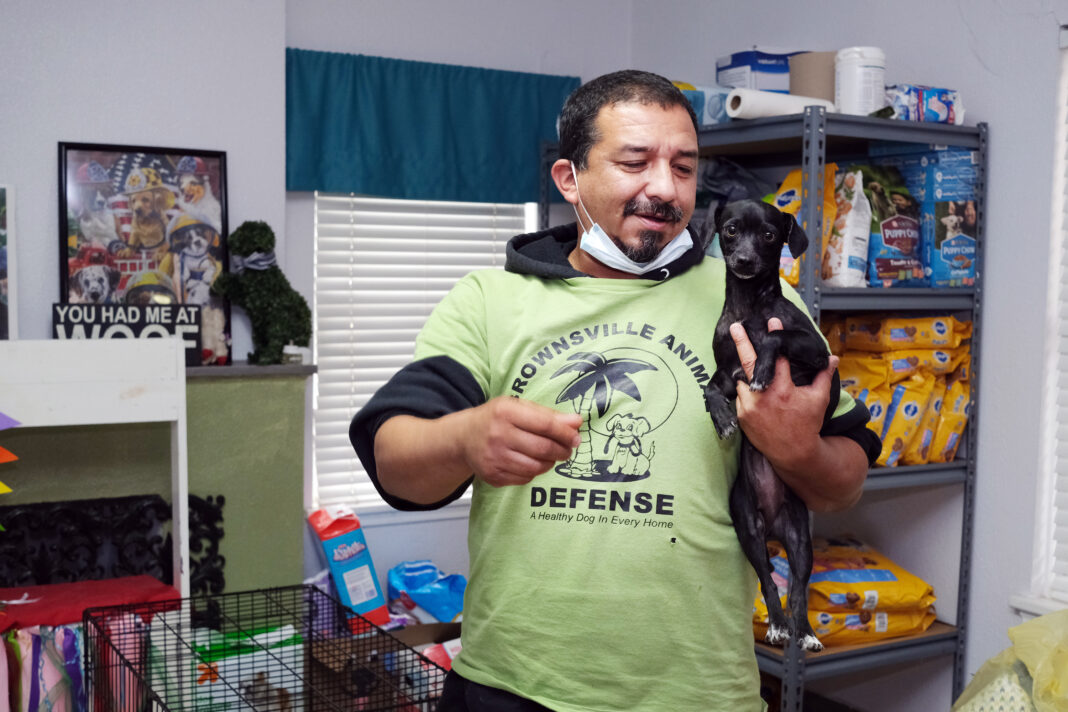The Texas “Dog Bill of Rights,” which takes effect Jan. 18 setting new rules for how dogs can be tethered outdoors, was obviously created with canine welfare in mind, though one Brownsville animal advocate is worried it could have unintended negative consequences locally.
Gov. Greg Abbott signed Senate Bill 5 into law in October after vetoing similar dog-friendly legislation over the summer. The law, which replaces an earlier one regarding dog mistreatment that was lightly enforced, bans chains or heavy weights as restraints and stipulates that dog collars must be made from “material specifically designed to be placed around the neck of a dog.”
Restraints must be at least five times the dog’s length, according to the new law, which also requires that dogs tethered outdoors have access to potable water and shelter from inclement weather, including extreme high or low temperatures and rain, sleet, snow, hail and high winds.
The law’s exceptions include dogs at public camping or recreational areas or during active training. Violations of any of the law’s provisions bring a Class C misdemeanor, or a Class B misdemeanor if the person has a previous conviction under the law. Animal control or police will respond only if a violation is reported.

Tony Lopez, president of the nonprofit Brownsville Animal Defense, founded by the late Tessie Sarmiento in 2011 to rescue and find homes for some portion of Brownsville’s sizable stray dog population, said that while the Dog Bill of Rights is well intended and may be effective in some communities, it’s likely to mean more work for him and his fellow unpaid BAD volunteers, Vice President Margaret Colvin and Shirley Wells, co-founder and treasurer, as well as the organization’s limited network of fosters.
Lopez predicts that rather than complying with the law or bringing their dogs indoors, many people will simply let them off the tether.
“We’re going to see a lot more animals running loose,” he said. “We’re going to have more of the same thing that we have right now, which is loose dogs running on the street.”
Lopez said BAD currently has about 15 adult dogs and more than 38 puppies placed with foster homes. They’re all strays or “owner surrenders.” They include Sofie, a young lab mix who was found with a broken leg and whose vet bills so far exceed $3,000, making the need for donations even more urgent than usual, he said.
“People find dogs on the street and they call us,” Lopez said. “Sometimes we have to say no because we don’t have fosters. We depend on fosters. We depend on the community for funds. Why? To keep saving dogs.”

BAD can’t take anymore dogs because the fosters have their hands full, as does the city’s animal shelter, he said. Lopez said the root of the stray-dog problem is that too few Brownsville dog owners spay or neuter their animals, and the reason for that is that spay/neuter services are expensive, though lower-cost options are available through the Brownsville Spay and Neuter Clinic and the Laguna Madre Humane Society.
BAD holds dog-adoption days at PetSmart on Saturday and Sundays from 1 p.m. to 5 p.m. and periodically has the same events at the Broken Sprocket and the Brownsville Farmers’ Market. Lopez said he’s constantly surprised how many people don’t know BAD exists even though it was founded 10 years ago, and that he hopes to double the organization’s support in 2022. He wants encourages businesses, especially, to “step up” and support the cause.
“We are very dedicated to this,” Lopez said. “None of us get paid. … When I beg for money I’m not begging for myself, I’m asking for the dogs, that’s it.”
Visit BAD’s website or Facebook or Instagram pages for information on adoptions and donations.




